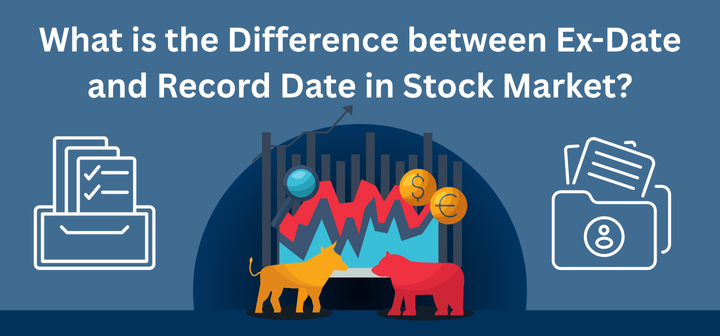How AUM Affects Mutual Fund Returns, Expenses & Investor Decisions?
Disclaimer: This content is solely for educational purposes. The securities/investments quoted here are not recommendatory.
The concept of Assets under Management (AUM) in mutual funds is similar to market capitalization in stock markets—both indicate the potential returns generated against investors’ resources.
What is Asset under Management (AUM)?
Asset under Management refers to the total cumulative investment sum of a particular mutual fund. It represents the overall market value that the fund holds, including capital and asset value.
AUM is directly managed by fund houses, with fund managers making investment decisions to maximize returns. It serves as a performance indicator and a size parameter for a fund house.
The exact AUM value includes bank deposits, mutual funds, and cash reserves. A higher AUM generally indicates strong investment inflows, quality management, and experienced fund handling. The management fees are often calculated as a percentage of the total AUM.
Since AUM fluctuates daily due to market movements and investor transactions, it reflects the inflow and outflow of funds within a mutual fund.
Importance of AUM in Mutual Funds
AUM plays a crucial role in mutual funds for several reasons:
- Indicates the Size of a Fund
AUM provides insights into a fund’s scale. A higher AUM suggests strong investor confidence and a well-established fund.
- Impacts Mutual Fund Performance
The size of AUM can influence fund performance:
- A large AUM may find it challenging to generate high returns as finding profitable investment opportunities without impacting the market becomes difficult.
- A smaller AUM enjoys more flexibility in seizing investment opportunities, potentially leading to higher returns.
- Affects Mutual Fund Fees
AUM influences the expense ratio, which affects investor costs:
- Larger funds may have higher minimum investment requirements, limiting access to retail investors.
- Smaller funds may have lower costs but higher risk due to lower diversification.
Impact of High AUM on Mutual Funds
The impact of high AUM varies based on fund type:
- Equity Funds: Performance depends on the fund manager’s skills rather than AUM.
- Debt Funds: Higher AUM is beneficial as costs are spread across more investors, reducing the expense ratio.
- Small-Cap Funds: AUM has a limited impact unless it reaches a level where the fund becomes a major shareholder in a company.
- Large-Cap Funds: Returns depend on market performance rather than AUM.
A high AUM does not guarantee higher returns—fund performance is primarily driven by the expertise of portfolio managers and their investment strategies.
Start your mutual fund investment journey with RMoney today!
How is AUM Calculated?
AUM is dynamic and fluctuates based on:
- Market performance: If investments grow, AUM increases; if they decline, AUM decreases.
- Investor transactions: Inflows (new investments) increase AUM, while outflows (redemptions) reduce it.
The total AUM value is updated daily based on these factors.
AUM and Expense Ratio
AUM influences a fund’s expense ratio, which represents the costs deducted from returns for administration and management. Higher AUM usually leads to a lower expense ratio due to economies of scale. However, as per SEBI regulations, the expense ratio of a mutual fund must always be lower than its AUM.
Difference between AUM and NAV
| Feature |
AUM (Assets Under Management) |
NAV (Net Asset Value) |
| Definition |
Total market value of all assets in a mutual fund |
Per-unit market value of the fund |
| Fluctuation |
Changes based on market performance and investor inflows/outflows |
Calculated daily based on portfolio performance |
| Purpose |
Assesses the fund’s size and scale |
Determines the price per unit for buying/selling |
FAQs
- What is AUM in Mutual Funds?
AUM refers to the total market value of all the securities that a mutual fund manages on behalf of its investors. It indicates the fund’s size, popularity, and revenue potential.
- How to Calculate AUM in Mutual Funds?
To calculate AUM:
- Check the fund’s financial statements.
- Locate the “Investments” or “Securities Held“ line item.
- Sum the total value of all securities (stocks, bonds, cash reserves, etc.).
- For multiple fund classes (e.g., Class A, B, C), calculate AUM separately.
3. How Can Mutual Funds Increase Their AUM?
Funds can grow their AUM by:
1. Expanding marketing efforts to attract new investors.
2. Offering unique investment strategies.
3. Maintaining strong and consistent performance.
4. Diversifying portfolios to appeal to more investors.
5. Partnering with financial advisors for better reach.
6. Offering additional services such as financial planning.
- Does AUM Affect NAV?
Yes, AUM can impact NAV. NAV is calculated by dividing the total fund value by the number of outstanding shares. If AUM increases due to rising asset values, NAV may also increase.
- What is Included in AUM?
AUM includes:
- Stocks
- Bonds
- Cash reserves
- Real estate investments
- Other securities managed by the fund
Need Help?
Contact RMoney at 0562-4266600 / 0562-7188900 or email askus@rmoneyindia.com

Stock Trading Now trade in ₹9 Per Order or ₹ 999 Per Month Plans.
Future & Options Access F&O contracts with advanced tools for hedging and speculation.
Currency Trading Trade in major currency pairs and manage forex exposure efficiently.
Commodity Trading Diversify Trading with MCX & NCDEX by Trading in Gold, Silver, Base Metals, Energy, and Agri Products.
Margin Trading Funding Boost your buying power with upto 5X, Buy now Pay Later
Algo Trading Back test, Paper Trade your logic & Automate your strategies with low-latency APIs.
Trading View Leverage Trading View charts and indicators integrated into your trading platform.
Advanced Options Trading Execute multi-leg option strategies with precision and insights.
Stock Lending & Borrowing Earn passive income by lending stocks securely through SLB.
Foreign Portfolio Investment Enable NRIs and FPIs to invest in Indian markets with ease and compliance.
IPO Invest in upcoming IPOs online with real-time tracking and instant allotment updates.
Direct Mutual Funds 0% Commissions by investing in more than +3500 Direct Mutual Fund Scheme.
Corporate FDRs Earn fixed returns with low-risk investments in high-rated corporate fixed deposits.
Stocks SIPs Build long-term wealth with systematic investment plans in top-performing stocks.
Bonds & NCDs Access secure, fixed-income investments through government and corporate bond offerings.
Depository Services Safely hold and manage your securities with seamless Demat and DP services with CDSL.
Journey Tracing our growth and milestones over time.
Mission & Vision Guided by purpose, driven by long-term vision.
Why RMoney Platform Smart, reliable platform for all investors' needs.
Management Experienced leadership driving strategic financial excellence.
Credentials Certified expertise with trusted industry recognition.
Press Release Latest company news, updates, and announcements.
Testimonials Real client stories sharing their success journeys.
7 Reasons to Invest Top benefits that make investing with us smart.
SEBI Registered Research Trusted insights backed by SEBI-compliant research.
Our Technology Advanced tools enabling efficient online trading.
Calculators Access a suite of smart tools to plan trades, margins, and returns effectively.
Margin Calculator Instantly check margin requirements for intraday and delivery trades.
MTF Calculator Calculate MTF funding cost upfront to ensure full transparency before placing a trade.
Brokerage Calculator Know your exact brokerage charges before placing any trade.
Market Place Explore curated investment products and trading tools in one convenient hub.
RMoney Gyan Enhance your market knowledge with expert blogs, videos, and tutorials.
Performance Tracker Track our research performance with full transparency using our performance tracker.
Feedback Share your suggestions or concerns to help us improve your experience.
Downloads Access important forms, software, and documents in one place.
Locate Us Find the nearest RMoney branch or service center quickly.
Escalation Matrix Resolve issues faster with our structured support escalation process.
Back Office Log in to view trade reports, ledger, and portfolio statements anytime.
Account Modification Update personal or bank details linked to your trading account.
Fund Transfer Transfer funds instantly online with quick limit updation to your trading account.
Bank Details View our registered bank account details for seamless transactions by NEFT, RTGS or IMPS.
How to Apply IPO Step-by-step guide to apply for IPOs using your trading account.
RMoney Quick Mobile App Trade on-the-go with our all-in-one mobile trading app.
RMoney Quick login Quickly access your trading account through the RMoney Quick web-based trading.
RMoney Rocket Web Version Experience powerful web-based trading with advanced tools for algo traders.
RMoney Rocket Mobile Version Trade anytime, anywhere with our feature-rich mobile trading platform.




















